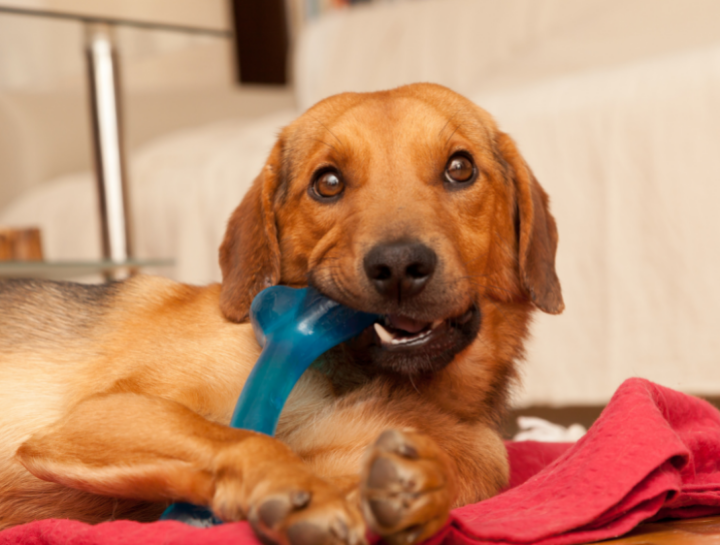Why Home Pet Dental Care Is So Important

Many pet owners think doggy or kitty breath is normal, but in fact it’s an early hallmark of periodontal disease. Once you notice your pet’s bad breath, dental disease is likely a foregone conclusion. The good news is that this condition is entirely preventable!
At Advantage Veterinary Center we’ve seen over and over again how a professional dental care program as well as at home pet dental care can benefit every dog and cat!
The Problem with Pet Dental Disease
Unfortunately, by the time pets reach 3 years of age, over 85% of them already have some form of dental disease. Genetics play a role in dental disease, but it’s also the result of a persistent lack of dental care, including regular brushing.
Besides bad breath, dental disease causes painful and infected gums, difficulty eating, bone loss, and tooth fractures. The bacteria that cause dental disease don’t stay in the mouth – If left untreated, the bacteria can migrate to the bloodstream, causing systemic damage of the heart, liver, and kidneys.
If you start with a dental exam and professional cleaning in our office, then following it up with regular at home dental care is the perfect way to keep plaque and tartar at bay until your pet’s next cleaning. This is a habit that can give your pet a lifetime of good health.
Which Bring Us To…
Brushing your pet’s teeth is the single best way to combat plaque and tartar at home. Veterinarians recommend that pet owners start brushing their pet’s teeth as soon as baby teeth emerge, but with a little practice and perseverance, adult pets can also learn to enjoy, or at least accept, daily tooth brushing.
Give us a call if you need a lesson in how to brush your pet’s teeth.
At Home Dental Care for Pets
Start your at home dental care plan by purchasing a pet toothbrush. You’ll need one that fits your pet’s mouth. Large dogs do well with an angled brush, and many cats and small dogs enjoy a finger brush.
You’ll also need pet-specific toothpaste. Never use human toothpaste for pets!
If your pet’s dental needs warrant it, we may also recommend one or more of the following to add to your arsenal.
Dental diet. A diet formulated specifically to combat plaque and tartar may be of benefit to your pet. The kibble is designed to work with an abrasive action to scrape tartar off the teeth. Some also contain an enzyme to prevent plaque formation.
Dental chews and treats. Dental treats and chews work in a similar manner as dental diets. The operative word is chew. Your pet must spend several minutes chewing on the treat, as gulping them down won’t have the same effect.
Wipes and rinses. Wipes that contain special enzymes can work almost as well as tooth brushing, and rinses can also be effective. Ask us for details specific to your individual pet.
Be sure any dental health care product you choose for your pets has the seal of the Veterinary Oral Health Council. This ensures that the product is effective against plaque and/or tartar.
Chew On This
Chewing on objects harder than the teeth can easily cause painful tooth fractures, especially of the upper premolars. Avoid giving your pet:
- Ice
- Rocks
- Sticks
- Antlers
- Cow or horse hooves
- Bones
Toys that seldom seem to cause harm to teeth include rubber balls and toys, such as Kong and Nylabone. Toys and treats that can be broken off and ingested, such as Greenies, should be given only with supervision. Large pieces can become lodged in the digestive tract and cause GI blockage or upset.
At home dental care is a wonderful way to give your pet a healthier life. Although it is a commitment to a new habit on your part, the benefits are endless. If you have questions or concerns, please give us a call. We are here to help!
